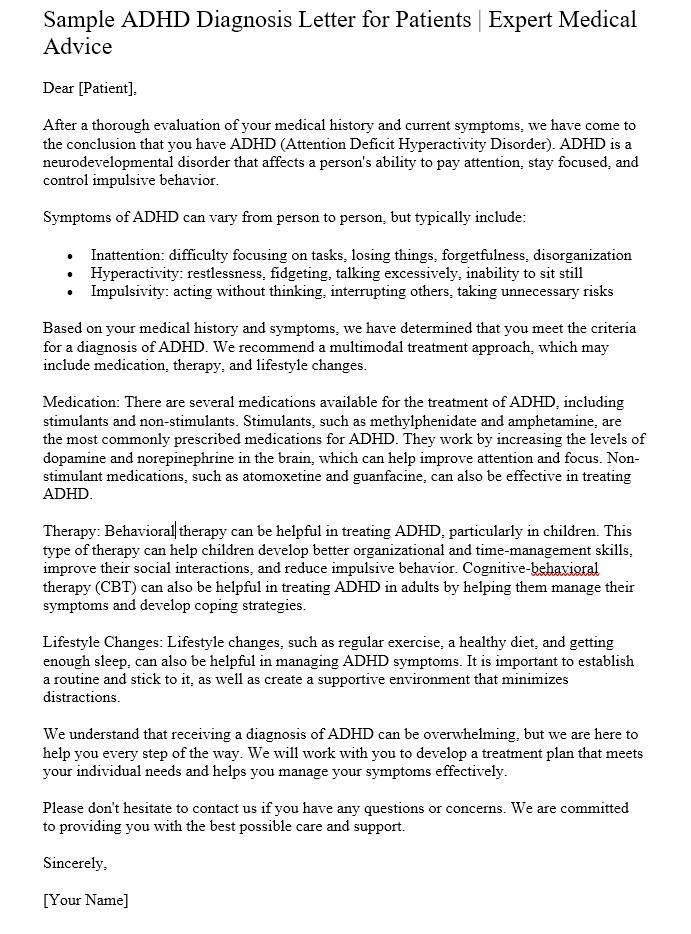Sample ADHD Diagnosis Letter for Patients | Expert Medical Advice
Get a comprehensive and accurate sample adhd diagnosis letter with expert medical advice. Our sample ADHD diagnosis letter can help you understand the diagnosis process and treatment options.
Dear [Patient],
After a thorough evaluation of your medical history and current symptoms, we have come to the conclusion that you have ADHD (Attention Deficit Hyperactivity Disorder). ADHD is a neurodevelopmental disorder that affects a person’s ability to pay attention, stay focused, and control impulsive behavior.
Symptoms of ADHD can vary from person to person, but typically include:
- Inattention: difficulty focusing on tasks, losing things, forgetfulness, disorganization
- Hyperactivity: restlessness, fidgeting, talking excessively, inability to sit still
- Impulsivity: acting without thinking, interrupting others, taking unnecessary risks
Based on your medical history and symptoms, we have determined that you meet the criteria for a diagnosis of ADHD. We recommend a multimodal treatment approach, which may include medication, therapy, and lifestyle changes.
Medication: There are several medications available for the treatment of ADHD, including stimulants and non-stimulants. Stimulants, such as methylphenidate and amphetamine, are the most commonly prescribed medications for ADHD. They work by increasing the levels of dopamine and norepinephrine in the brain, which can help improve attention and focus. Non-stimulant medications, such as atomoxetine and guanfacine, can also be effective in treating ADHD.
Therapy: Behavioral therapy can be helpful in treating ADHD, particularly in children. This type of therapy can help children develop better organizational and time-management skills, improve their social interactions, and reduce impulsive behavior. Cognitive-behavioral therapy (CBT) can also be helpful in treating ADHD in adults by helping them manage their symptoms and develop coping strategies.
Lifestyle Changes: Lifestyle changes, such as regular exercise, a healthy diet, and getting enough sleep, can also be helpful in managing ADHD symptoms. It is important to establish a routine and stick to it, as well as create a supportive environment that minimizes distractions.
We understand that receiving a diagnosis of ADHD can be overwhelming, but we are here to help you every step of the way. We will work with you to develop a treatment plan that meets your individual needs and helps you manage your symptoms effectively.
Please don’t hesitate to contact us if you have any questions or concerns. We are committed to providing you with the best possible care and support.
Sincerely,
[Your Name]
